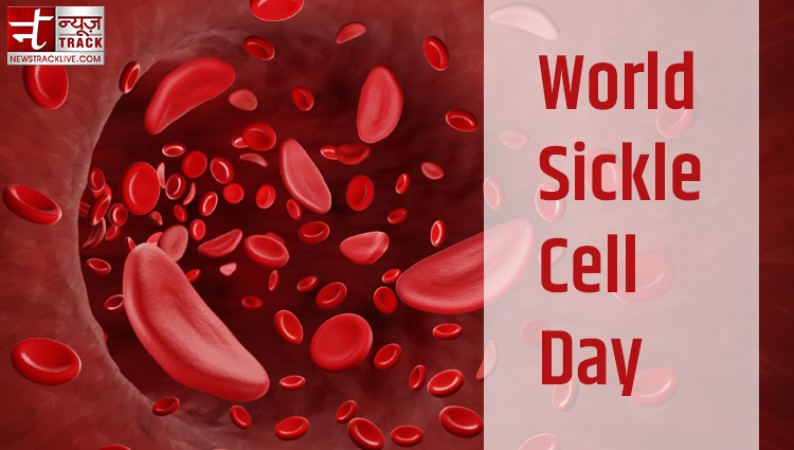
World Sickle Cell Awareness Day is celebrated annually on June 19th to raise awareness about sickle cell disease (SCD), an inherited blood disorder that affects millions of people worldwide. The day aims to increase public knowledge about SCD, advocate for better healthcare services and support for individuals living with the condition, and encourage efforts to find a cure.
Understanding Sickle Cell Disease: Sickle cell disease is a group of genetic disorders that affect the shape and function of red blood cells. The most common form is sickle cell anemia (SCA), which occurs when individuals inherit two abnormal hemoglobin genes, one from each parent. Hemoglobin is the protein in red blood cells that carries oxygen throughout the body. In SCA, the abnormal hemoglobin causes red blood cells to become rigid and sickle-shaped instead of the normal disc shape.
The sickle-shaped cells are less flexible and have difficulty passing through small blood vessels, leading to blockages that restrict blood flow. These blockages can cause severe pain, organ damage, anemia, and a range of other complications. Individuals with SCD often experience recurrent episodes of pain, known as sickle cell crises, and are at increased risk of infections and stroke.
Global Impact of Sickle Cell Disease: Sickle cell disease is a global health concern, particularly prevalent in sub-Saharan Africa, the Middle East, the Mediterranean, and parts of India. It is estimated that around 300,000 babies are born with SCD each year, with over 90% of these births occurring in low- and middle-income countries. The World Health Organization (WHO) recognizes SCD as a major public health problem and has called for increased efforts to address the disease.
World Sickle Cell Awareness Day plays a vital role in increasing public knowledge and understanding of SCD. Organizations, healthcare professionals, advocates, and affected individuals worldwide join forces to educate communities, policymakers, and healthcare providers about the disease. Through various activities, such as conferences, seminars, public campaigns, and media coverage, awareness is raised about the impact of SCD on individuals, families, and societies.
Another essential aspect of World Sickle Cell Awareness Day is advocating for better healthcare services and support for individuals living with SCD. People with SCD often face challenges such as limited access to quality healthcare, lack of specialized services, and discrimination. Advocacy efforts aim to improve diagnosis, treatment, and care for those affected by the disease, ensuring they have access to essential medications, blood transfusions, and supportive therapies.
Research and Treatment: While there is no widely available cure for sickle cell disease, ongoing research and medical advancements offer hope for improved treatment options. World Sickle Cell Awareness Day helps to raise funds and promote research initiatives aimed at finding a cure and developing more effective therapies. Awareness campaigns also encourage individuals to participate in clinical trials and support efforts to improve the lives of those living with SCD.
World Sickle Cell Awareness Day serves as a global platform to raise awareness, advocate for improved healthcare services, and support research efforts in the fight against sickle cell disease. By increasing understanding and empathy, we can work towards a future where individuals with SCD receive the care, resources, and opportunities they need to lead fulfilling lives. Together, we can create a world where sickle cell disease no longer poses a significant burden on individuals, families, and communities.
Remember, June 19th is not just a day for awareness; it is a day to stand in solidarity with those affected by sickle cell disease and work towards a brighter future.